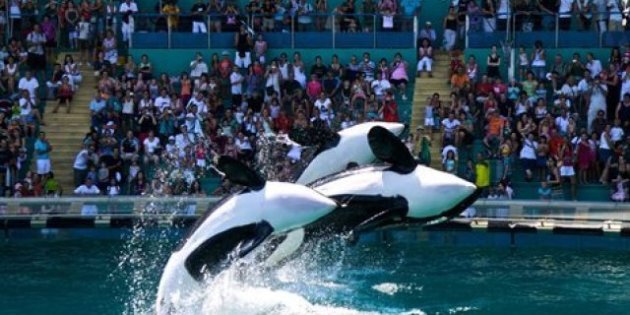

New Bill Saves the Whales but Might Kill Marine Land
Business & TechCanadaNews Oct 30, 2018 Liam Harrington

By Liam Harrington
Everybody loves Marineland… or at least they used to until people starting saying the captivity of whales and dolphins is cruel.
Now the Canadian government is pushing legislation to make the captivity of whales and dolphins illegal.
It all started in 2015 when now-retired Senator Wilfred Moore first brought Bill S-203 to the senate. The Bill makes capturing cetaceans (animals like dolphins or whales) and then keeping them in captivity illegal. It also modifies the Fisheries Act by making it illegal to take these animals out of their natural habitat. On top of all that, it also places strict rules on the importing and exporting of cetaceans from and to Canada.
During a recent hearing in the Canadian senate, Senator Murray Sinclair stressed the importance of freeing these animals. Sinclair discussed why it is cruel to keep cetaceans in captivity and why we need to stop. “Cetaceans possess intelligence, emotions, social lives that include extremely close bonds to their families, complex communication skills and roaming lifestyles,”.
Marineland disagrees stating that “The bill and debate around it has been highly emotional, lacking in fact-based or science-based analysis and mired in unnecessary conflict incited by radical animal rights groups from the United States.”
The bill is having major effects on other marine parks too, including those in the United States. For example, SeaWorld is experiencing some serious turbulence right now from the aftershock of this bill. They no longer have access to many of their most essential animals (like the Orca or Beluga Whale), their stocks are damaged (down just under five dollars) and they’re losing many of their business partners, which include multiple airliners and fast food chains like Taco Bell.
Dr. Moira Brown from the Canadian Whale Institute has been actively fighting companies like Marineland, arguing their business practises have long lasting effects on the environment. Her work connects the capturing and fishing of whales as a major cause of mass deaths in whale communities.
She says, “whales do not have the capacity to sustain low birth rates and high death rates for very long. If mortality rates remain the same as between 2011 and 2015, with so few breeding females alive, the species could become functionally extinct in less than 25 years.”
Elizabeth May leader of the Green Party of Canada is excited that the bill has been progressing so well and she’s a thorough supporter of the bill although she thinks it could do more. However, she thinks the bill is making great strides in the right direction.
During a house reading of the bill May said, “This bill would bring back protections for habitat. It goes back to looking at some of the foundational pieces of how the Fisheries Act is supposed to work, and then it goes farther.”
